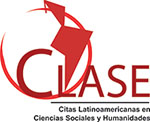Perspectivas de la inteligencia artificial en los estudiantes de educación superior
DOI:
https://doi.org/10.23857/dc.v10i3.4018Palabras clave:
Inteligencia artificial, educación superior, aprendizaje digital, aprendizaje automáticoResumen
La Inteligencia Artificial (IA) ofrece el potencial transformador para el aumento y la posible sustitución de tareas y actividades humanas dentro de una amplia gama de aplicaciones industriales, intelectuales y sociales, sobre todo convirtiéndose en una potente tecnología con incidencia para transformar la educación. El ritmo de cambio de esta nueva era tecnológica de la IA es asombroso, con nuevos avances en el aprendizaje automático, la toma de decisiones autónomas que generan nuevas oportunidades para la innovación continua, entornos educativos para facilitar la enseñanza y el aprendizaje, entre otros. La utilización de la inteligencia artificial en la educación superior representa un avance significativo, transformándose en una herramienta clave en la educación actual y ofreciendo múltiples beneficios que están revolucionando el proceso de enseñanza y aprendizaje. El objetivo del actual trabajo fue analizar las perspectivas de la inteligencia artificial (IA) en los estudiantes de educación superior, realizándose una investigación que se basó en el análisis documental, el estudio de trabajos científicos, artículos de investigación y bases de datos; el diseño de la investigación es no experimental y cuantitativo, utilizando estadística descriptiva mediante encuestas aplicadas a 128 estudiantes universitarios de diferentes niveles en la Universidad Técnica Estatal de Quevedo, en la República de Ecuador. Los hallazgos muestran que, en general, los estudiantes tienen una percepción positiva de la IA y creen que es beneficiosa para la educación; sin embargo, siguen preocupados por algunos de los inconvenientes de su uso, por lo que es necesario tomar medidas para minimizar el impacto negativo sin dejar de aprovechar las ventajas de la IA en la educación.
Citas
Bahroun, Z., Anane, C., Ahmed, V., & Zacca, A. (2023). Transforming education: A comprehensive review of generative artificial intelligence in educational settings through bibliometric and content analysis. Sustainability, 15(17), 12983. https://doi.org/10.3390/su151712983
Calderón Figueroa, C. D., Marín Loor, R. A., Díaz Campozano, E. G., & Proaño Molina, M. Y. (2024). Inteligencia artificial en la educación superior. Dominio De Las Ciencias, 10(3), 753–763. https://dominiodelasciencias.com/ojs/index.php/es/article/view/3952
Chen, L., Chen, P., & Lin, Z. (2020). Artificial intelligence in education: A review. Ieee Access, 8, 75264-75278. https://doi.org/10.1109/ACCESS.2020.2988510
Edu, T., Negricea, C., Zaharia, R., & Zaharia, R. M. (2022). Factors influencing student transition to online education in the COVID 19 pandemic lockdown: Evidence from Romania. Economic Research-Ekonomska Istraživanja, 35(1), 3291-3304. https://doi.org/10.1080/1331677X.2021.1990782
García Villarroel, J. J. (2021). IMPLICANCIA DE LA INTELIGENCIA ARTIFICIAL EN LAS AULAS VIRTUALES PARA LA EDUCACIÓN SUPERIOR. Orbis Tertius - UPAL, 5(10), 31–52. https://doi.org/10.59748/ot.v5i10.98
Kaplan, A., & Haenlein, M. (2019). Siri, Siri, in my hand: Who’s the fairest in the land? On the interpretations, illustrations, and implications of artificial intelligence. Business horizons, 62(1), 15-25.
Leoste, J., Jõgi, L., Õun, T., Pastor, L., San Martín López, J., & Grauberg, I. (2021). Perceptions about the future of integrating emerging technologies into higher education—the case of robotics with artificial intelligence. Computers, 10(9), 110. https://doi.org/10.3390/computers10090110
Liu, C., Hou, J., Tu, Y. F., Wang, Y., & Hwang, G. J. (2023). Incorporating a reflective thinking promoting mechanism into artificial intelligence-supported English writing environments. Interactive Learning Environments, 31(9), 5614-5632. https://doi.org/10.1080/10494820.2021.2012812
Luckin, R., W. Holmes, M. Griffiths y L. B. Forcier. (2016). Intelligence Unleashed: An argument for AI in Education. Londres: Pearson Education. https://www.pearson.com/content/dam/one-dot-com/one-dot
Marshall, R., Pardo, A., Smith, D., & Watson, T. (2022). Implementing next generation privacy and ethics research in education technology. British Journal of Educational Technology, 53(4), 737-755. https://doi.org/10.1111/bjet.13224
Marzuki, Widiati, U., Rusdin, D., Darwin, & Indrawati, I. (2023). The impact of AI writing tools on the content and organization of students’ writing: EFL teachers’ perspective. Cogent Education, 10(2), 2236469. https://doi.org/10.1080/2331186X.2023.2236469
Pimentel, J. F. F., Arenas, R. D., Mendoza, A. S. C., Meza, L. C. F., Contreras, J. L. M., & Pimentel, D. E. F. (2023). Uso de la Inteligencia Artificial en Estudiantes Universitarios. Ciencia Latina Revista Científica Multidisciplinar, 7(6), 4458-4470. https://doi.org/10.37811/cl_rcm.v7i6.9012
Pisica, A. I., Edu, T., Zaharia, R. M., & Zaharia, R. (2023). Implementing artificial intelligence in higher education: Pros and cons from the perspectives of academics. Societies, 13(5), 118. https://doi.org/10.3390/soc13050118
Pokrivcakova, S. (2019). Preparing teachers for the application of AI-powered technologies in foreign language education. Journal of Language and Cultural Education, 7(3), 135-153. https://doi.org/10.2478/jolace-2019-0025
Sok, S., & Heng, K. (2023). ChatGPT for education and research: A review of benefits and risks. Cambodian Journal of Educational Research, 3(1), 110-121. https://www.researchgate.net/profile/Cambodian-Journal-Of-Educational-Research/publication/373170005_Cambodian_Journal_of_Educational_Research_Volume_3_Number_1/links/64de1f111351f5785b707247/Cambodian-Journal-of-Educational-Research-Volume-3-Number-1.pdf#page=129
Ulloa Menta, J. L., Solórzano Mendoza, C. M., Díaz Campozano, E. G., Quiñonez Becerra, N. M., & Baque-Mite, L. A. (2024). Usos de la inteligencia artificial en los estudiantes universitarios. Polo del Conocimiento, 9(8), 3557-3569. https://doi.org/10.23857/pc.v9i8.7899
Zhao, X. (2023). Leveraging artificial intelligence (AI) technology for English writing: Introducing wordtune as a digital writing assistant for EFL writers. RELC Journal, 54(3), 890-894. https://doi.org/10.1177/00336882221094089
Zaharia, R. M., Olteanu, V., & Pop, N. A. (2009). Interdisciplinarity in Economics and Business Administration: The Romanian Higher Education Experience. Transformations in Business & Economics, 8(3), 179-193.
Descargas
Publicado
Cómo citar
Número
Sección
Licencia
Derechos de autor 2024 Karyna Michel Calvopiña Coello, Pierina Marielisa Hidalgo Sánchez, María Celina Santos Fálconez, Gianfranco Di Mattia Castro

Esta obra está bajo una licencia internacional Creative Commons Atribución 4.0.
Authors retain copyright and guarantee the Journal the right to be the first publication of the work. These are covered by a Creative Commons (CC BY-NC-ND 4.0) license that allows others to share the work with an acknowledgment of the work authorship and the initial publication in this journal.






